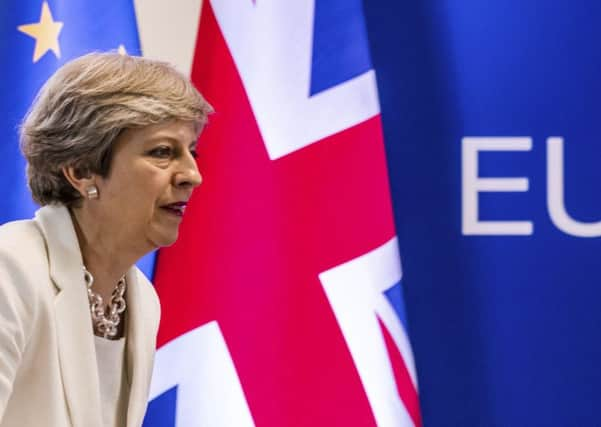Free EU movement to end in 2019, says Downing Street


Tory Brexit tensions have heightened after Chancellor Philip Hammond and Home Secretary Amber Rudd backed transitional arrangements after the UK leaves the bloc, which suggested EU migration could continue with a registration scheme.
However, International Trade Secretary and leading Brexiteer Liam Fox said unregulated free movement of labour after Brexit would “not keep faith” with the EU referendum result and that the Cabinet had not agreed a stance on immigration.
Advertisement
Hide AdAdvertisement
Hide AdThe Prime Minister’s official spokesman insisted the Government’s position remained as set out by Mrs May in her Lancaster House speech on Brexit.
“The Prime Minister’s position on an implementation period is very clear and well-known,” he said.
“Free movement will end in March 2019. We have published proposals on citizens’ rights. Last week, the Home Secretary said there will be a registration system for migrants arriving post-March 2019.
“Other elements of the post-Brexit immigration system will be brought forward in due course. It would be wrong to speculate on what these might look like or to suggest that free movement will continue as it is now.”
Number 10’s intervention came as Cabinet ministers Jeremy Hunt and Sir Michael Fallon sought to play down reports of splits within Mrs May’s top team.
Downing Street acknowledged “it will take time to get immigration numbers down” but the government remained committed to that aim.
Number 10 dismissed the idea that the UK was seeking an “off-the-shelf” model for the transitional period, as Mr Hammond had reportedly told business leaders.
“We are not looking for an off-the-shelf model. Precise details of what the implementation period looks like are for negotiation,” the spokesman said.
Advertisement
Hide AdAdvertisement
Hide AdDefence Secretary Sir Michael said the issue of immigration policy during a transitional deal would be “one of the details” for the Brexit negotiations.
Meanwhile, a spokesman for Boris Johnson was forced to dismiss a suggestion that the Foreign Secretary was about to quit over the way Brexit was being handled.
He said Liberal Democrat leader Sir Vince Cable, who had referred to rumours about Mr Johnson’s future, was “making this stuff up”.